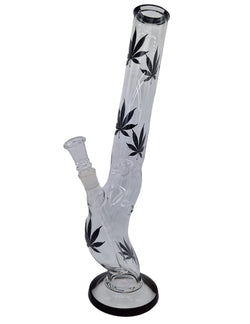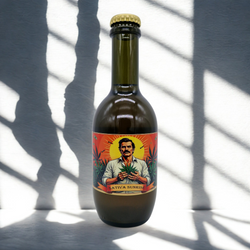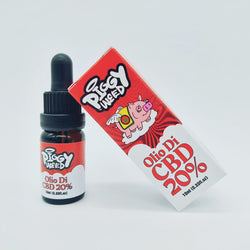Few people know that cannabis plants and buds in their natural state do not contain THC but its chemical precursor, the THCA, which is transformed into the more well-known molecule only after a heating process. Today we are going to discover THCA, which is attracting a lot of interest from researchers and cannabis enthusiasts.
THCA what is it?
THCA (or tetrahydrocannabinolic acid) acts as a biosynthetic precursor of THC and transforms into the latter after the process of decarboxylation.
This means that cannabis buds are rich in THCA, which loses some of its atoms during the heating process and turns into psychoactive THC.
This is why you should eat cannabis THCA flower It has no psychoactive power, while after being heated the substance acquires its well-known potency.
THC vs THCA, what are the differences?
THCA contains two more oxygen atoms and one more hydrogen atom than THC. This small difference is enough to make the effects of the two molecules completely different. Let's look at the main ones together differences between THCA and THC.
THCA:
- It is found in cannabis in its natural, untreated and “raw” state.
- After decarboxylation, it contributes 90% of the THC contained in smoking or edible cannabis.
- According to some studies, it can have a positive effect on the nervous system, even with soothing effects.
- It interacts with the CB1 receptor but at a less intense level than THC
- It is not psychoactive
THC:
- It is produced after the decarboxylation of cannabis and is present only in residual quantities in the raw plant.
- It is psychoactive and produces numerous effects, both recreational, such as euphoria, and medical, such as pain relief and a calming action on the nervous system.
- It interacts with the CB1 receptor and works synergistically with cannabis terpenes.
In conclusion, the main difference between THCA and THC, on a practical level, lies in the psychoactive effects which are specific to one molecule and not to the other. Even the medical effects of THC appear to be enhanced compared to those of THCA – although scientists are conducting interesting research that may re-evaluate THCA for medical use.
THCA effects
So far, studies on Effects of THCA have been produced in laboratories and on guinea pigs, not yet on humans. Nevertheless, the results of some research are very interesting and promising for a possible therapeutic use of THCA!
- Role in weight loss
According to a recent study, THCA could have an adjuvant role in weight reduction therapies. The research was conducted on mice and it was seen that this molecule, interacting with the PPAR receptor, stimulated the reduction of fat mass.
- Soothing action
According to the research, THCA can provide relief from painful joints: this is always due to its interaction with the PPAR and CB1 receptors. This makes this molecule virtually ideal for the treatment of arthritis, like THC, but without the psychoactive “side” effects.
- Anti-nausea effect
Recent studies They affirm the anti-nausea role that THCA could have in humans: this would make the molecule extremely promising for medical use.
- Role in liver health
Studies Studies on mice suggest that THCA may have a protective role for some organs, the liver in particular.
- Anticonvulsant
According to some preliminary research, THCA may have an anticonvulsant effect that could make it useful in the therapy of some types of epilepsy.
It is important to remember that research on THCA is still limited and pioneering, however we can see how many interesting ideas it offers for healing various debilitating medical conditions.
Is THCA legal?
In terms of legality, THCA is in a “gray area” in many countries. While it is not illegal in itself, In Italy, possessing raw cannabis is still a crime, also because when heated it would produce THC.
It is important to always act in compliance with the rules of each individual country in which you find yourself, so we affirm that those who find themselves in Italy would do well to behave as if THCA were illegal.
How to take THCA?
THCA can be ingested by consuming raw cannabis – and no, this will not result in the presence of THC in urine-. Raw marijuana could be consumed chopped and added to a salad or smoothie. It is best not to use the leaves for this type of preparation, but rather the cannabis buds.
Conclusions
THCA is the chemical precursor of THC: It becomes such after a heating process. Although it has no psychoactive power, THCA, the main component of raw cannabis, can have interesting therapeutic implications. For this reason, we hope that research on the extraordinary world of cannabis will always increase: this plant offered by nature is proving to be a true super-medicine, in which all the molecules work together to create significant therapeutic effects.





